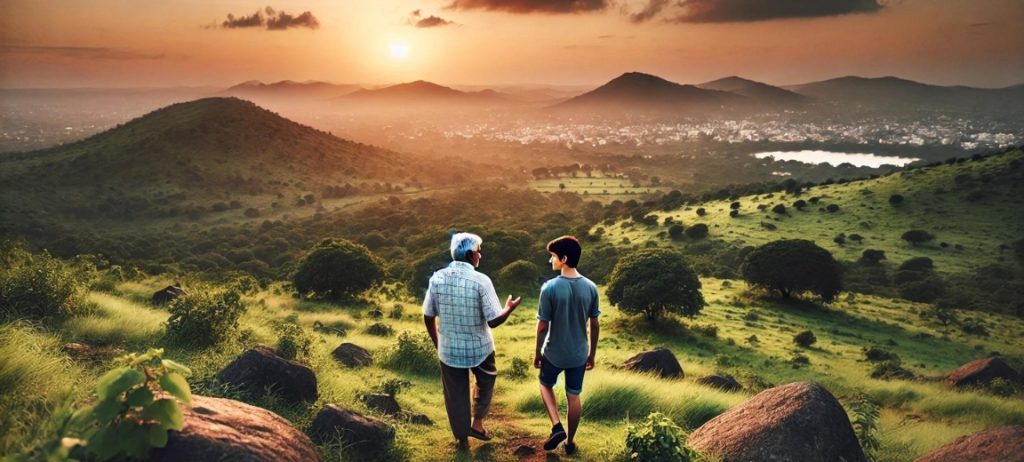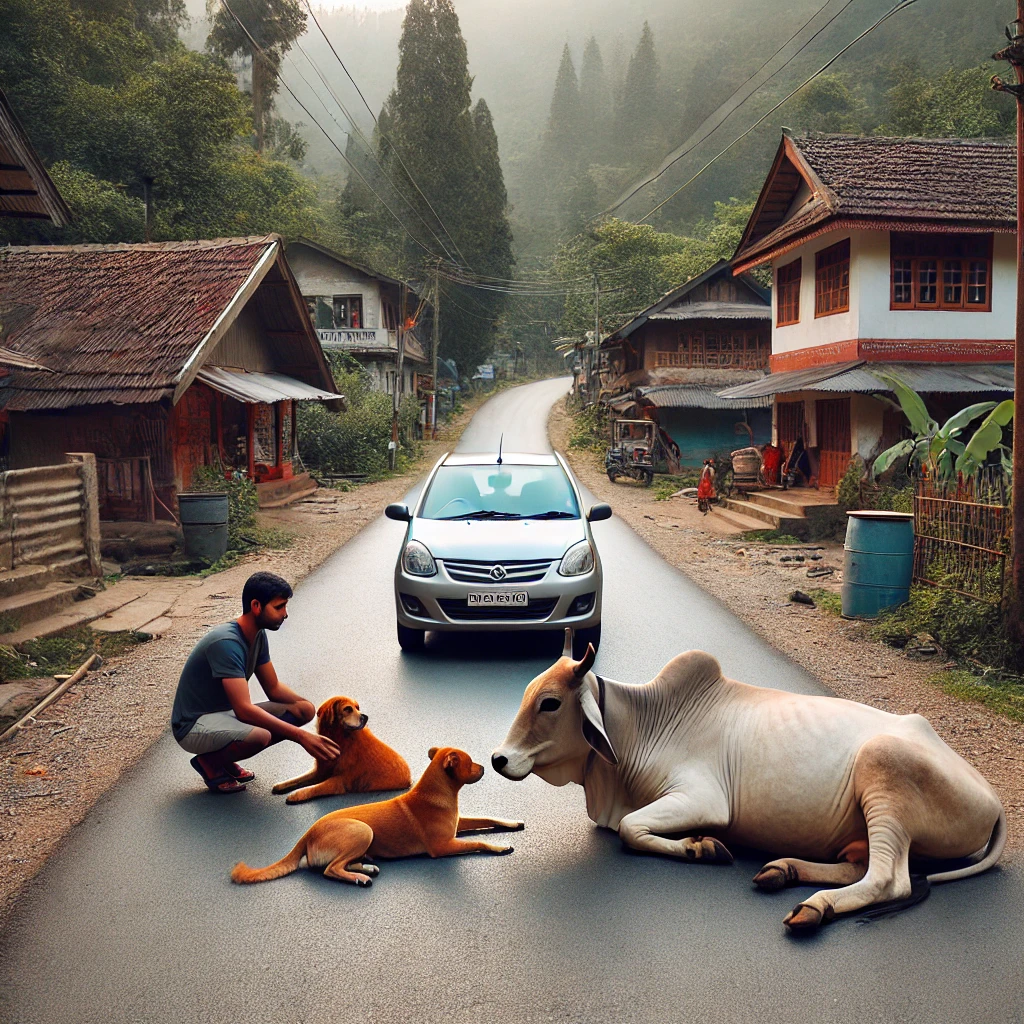
In 1957, my father was the district topper but chose to become a primary school teacher instead of an administrator. I mention this to highlight his mindset — and mine as his son. While he dedicated his life to building students’ morale, I was a compulsive liar and enjoyed lying until the day it brought huge embarrassment to my family. Instead of getting angry, my father took me for a walk on a nearby hillside.
He asked, ‘Do you feel happy lying?’
I said, ‘Yes, father.’
He replied, ‘That’s okay, my son. Everyone lies at some point. Lying isn’t always bad. Just remember, when you lie to someone, look straight into their eyes and recognise that you’re lying because you’re afraid of them and have no other option.’
Puzzled, I went home and told my mother about the conversation. She smiled and said, ‘I asked him about it too, and was surprised. Your father said, “I know my son. He’s like a fearless lion. He would rather die than be afraid of someone”.’
This conversation changed my life.
Over my 23-year professional career, I lost 14 jobs, always because I told the truth. Then I joined Janaagraha, where I found that the top leadership valued truth, even if it was bitter, and supported me like no one else had before. My commitment has now turned into vows.
Lesson: Follow what your parents say. You’ll see the results one day.
‘Tahia Upare Tahia’ is a very famous Odia idiom taught in regional elementary schools. It means ‘Have you ever come across something with 10 legs and 3 heads?’. The answer is ‘A farmer ploughing the field with two bulls’.
Back in 1994, during one of my regular visits to primary schools across tribal districts, I encountered a very innocent boy, around 10 years old. I asked him this question and was prepared to offer him a chocolate as a prize for the correct answer.
While other children excitedly answered and claimed their chocolates, I noticed tears in his eyes. I gently reassured him that it was okay if he couldn’t remember the answer.
He replied, ‘No, I know the answer. But my Ma is a contractual farmer, and we have only one bull on daily rent, so my Ba pulls the other side of the plough, making the total head count 3 but the leg count 8.’

I struggled to hold back my tears.
Lesson: I haven’t wasted food in the last 30 years.
In 2004, I left my job in the US, but everyone else I went with stayed back. Despite our efforts to meet up in India, conflicting schedules always got in the way. However, in 2015, after 11 years, the five of us finally reunited in Bhubaneswar.
Three of them started discussing their jobs, salaries, life in the US, and the assets they had accumulated. The conversation took an interesting turn when we encountered two stray dogs and a cow calmly lying on the road near my home, unaffected by the traffic and horns. We had to slow down and carefully maneuver around them.
“The unchanged ‘desi’ mindset and living standards in India” became the new topic of discussion.
I got out of the vehicle, coaxed the three street animals off the road, and started playing with them. We (the dogs, the cow, and me) had a little party with local biscuits, cakes, and snacks. The dogs loved the pats on their back and the cow enjoyed the hugs. After bidding them farewell near a small park, I returned to my friends.

Lessons: First, it wasn’t the animals’ disobedience to traffic but their confidence that ‘desi’ people wouldn’t harm them, no matter how busy the road was. It was their belief in cohabitation.
Second, this is the force of love and bonding that moves the world around us. You can call it centripetal or centrifugal forces, but ultimately, it is love that connects everything.
In April 2024, after a week-long extensive field visit, study, and research in four urban local bodies of northwestern Odisha, a friend invited me to spend the weekend with the aboriginal and primitive tribal people he had dedicated his life to serving, inside the 7th largest national park in India and Asia’s second-largest biosphere reserve, covering 2,750 square kilometers of dense forest.
After driving about 100 kilometers to the forest and then 27 kilometers deep into the core area, we arrived at a health centre created and managed by just two people. This haven, located deep in the forest without proper roads, power supply, telecommunication, or basic amenities, has acquired everything through charity and donations to serve the endangered Kolha, Hill Khadia, and Santal tribes within a 25-kilometer radius. Remarkably, the service has achieved ‘zero’ infant mortality, down from 42%, ‘zero’ maternal mortality, down from 37%, and 100% institutional delivery.

Lesson: If you want to be in heaven, create one. If you want to change, be the change. God may be above us, but is definitely inside us, near us, and among us.
Jai Hind